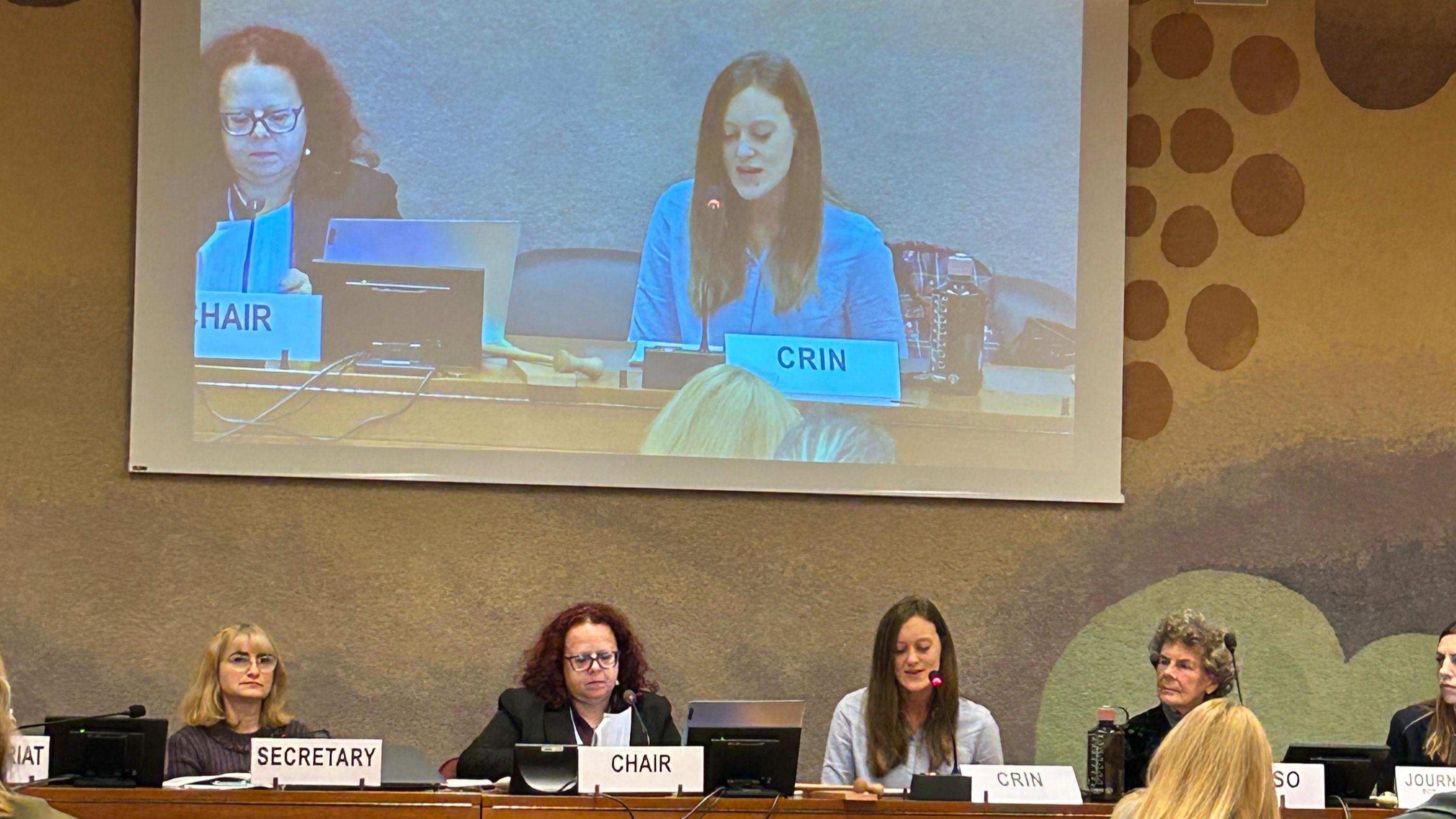Blog
Youth Climate Justice project highlighted in Statement to the United Nations’ Aarhus Convention Taskforce in Geneva.

On 12 December 2024, the Youth Climate Justice project was a key feature of a statement given by Katie Reid, our Child and Youth Participation Advisor, about children’s participation in environmental decision-making to the United Nations’ Aarhus Convention Task Force on Public Participation in Decision-making in the Palais des Nations, Geneva.
On 12 December 2024, the Youth Climate Justice project was a key feature of a statement given by Katie Reid, our Child and Youth Participation Advisor, about children’s participation in environmental decision-making to the United Nations’ Aarhus Convention Task Force on Public Participation in Decision-making in the Palais des Nations, Geneva.
Katie spoke about children’s crucial role in the development of the United Nations Committee on the Rights of the Child’s General Comment No.26, published in 2023. She described the key messages shared by over 16,300 children from across 121 countries during the consultations that took place to inform the final text. This included children’s reflections on how they wish to be involved in environmental decision-making processes, and some of the key barriers they face.
Drawing on emerging research evidence from the Youth Climate Justice project, Katie also highlighted how children are leading efforts to stand up for climate justice, and taking to the courts to demand urgent action and the protection of their rights. She cited our ongoing research on children’s experiences of participating in the United Nations Framework Convention on Climate Change Conference of the Parties (COP) and what challenges children have faced with regards to feeling heard and taken seriously in such fora.
Highlighting children’s own recognition of the importance of intergenerational opportunities to work together with adults to participate in decision-making processes, Katie concluded by describing her work and research on citizens’ assemblies that have involved children and young people on environmental issues. She reflected on the significance of this increasingly popular model of deliberative democracy as a way of bringing children, young people and adults together to be valued as equal participants in political decision-making processes.
Katie’s statement was accompanied by a video intervention from two children she has worked with for Ireland’s Children and Young People’s Assembly on Biodiversity Loss – Niamh and Conor. Niamh, a Young Advisor for the Assembly (and who gave a keynote speech at the Youth Climate Justice international conference in September), described her experience co-designing and facilitating a participatory process for other children, and reflected on how citizens’ assemblies can offer a fairer approach to the selection of children in participatory processes. Conor, who was just 11 years old when he was randomly selected to be an Assembly member, described what he learnt and enjoyed most about the process, explaining that ‘fun, educational and eye-opening’ would be the three words he would use to capture the experience.
“We care about the future we’re going to have. We care about the people that we’ve never met but suffer from this horrific crisis daily. We care about making this right. And, when we’re allowed to, when we are finally given a seat at the tables that discuss these issues - the seat that we deserve - we can move mountains.” - Niamh, Young Advisor to the United Nations Aarhus Convention Taskforce on Public Participation.
A recording of the statement can be found at: https://conf.unog.ch/digitalrecordings/en?guid=public/32.0130/8B95C9C3-41D6-45F9-9F37-1D0FA305D53C_10h11&position=2510&channel=ORIGINAL
For more on this story contact:
Katie Reid, kreid@ucc.ie

